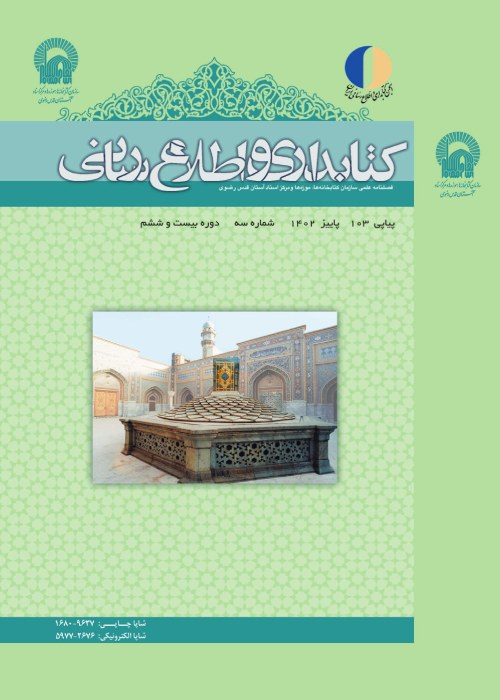Providing a Model for Recommendation Systems of Information Resources in Iranian Library Software
Users in the library software environment are immersed in a sea of information and searching in this space is time-consuming and confusing for them. By searching for each keyword, the software identifies and displays many resources, and choosing the most appropriate and relevant source to the user's needs is another matter.One of the major problems with library software is the loss of information in the software. Personalizing information and giving advice to users depends on storing data in the library system. For example, in the search section of many library softwares, there is no requirement to enter the users' personal page, and the system performs the search and retrieval of information without identifying the users. Recommending systems are created primarily to offer an option to the user in the search or selection process, thereby helping them to choose a better option. Therefore, the present research aims at providing a model for recommendation systems of information resources in Iranian library software.
This study, in terms of the purpose, is an applied research. Descriptive survey method was used to evaluate the recommendation status of library software. Moreover, the system design method was utilized to suggest the recommendation pattern in library software. Data were gathered through in-depth and semi-structured interviews with managers and specialists of library software. The data were coded and extracted using the MAXQDA qualitative data analysis software.
Qualitative analysis of the interview results led to the identification of five main categories, 16 sub-categories, and their concepts. The findings showed that in the category of the current strategies of library software for the recommendation, traditional method of recommendation, defining relationship between records, relationship between topics, relationship between words, and defining the search refinement module have been utilized. Moreover, in the category of determining the level of familiarity with the recommender system, three categories of perfect familiarity (17%), brief familiarity (50%) and unfamiliarity (33%) were identified. In terms of the required facilities of the recommender systems, the sub-categories of technical, system, and specialized facilities (customization) were recognized, and its concepts were explained. The challenges of adding a recommender system in two categories of technical and non-technical challenges and their concepts were pointed out. In addition, the benefits of adding a recommender system were explained in three categories, namely the benefits for library members, for librarians, as well as for software companies. Also, the characteristics of the appropriate design pattern of the recommender system of the Iranian library software were identified and suggested.
The results of data analysis of interviews with managers and specialists of the Iranian library software companies showed that the companies are moving on the way to take advantage of modern technologies. They have implemented some requirements for the implementation of the recommender system in their software. Currently, the creation and completion of similarities between information resources have been allocated to librarians as their responsibility or designed based on search refinement techniques (like faceted search or clustering), which this section in software has the ability to become a recommender system. The results also showed that familiarity of managers and professionals of the companies with the recommender systems is moderate. Companies are needed to be aware of recommender systems based on the identified challenges and benefits of recommender systems in library software. Additionally, the pattern of recommender systems in the Iranian library software is designed and offered.
- حق عضویت دریافتی صرف حمایت از نشریات عضو و نگهداری، تکمیل و توسعه مگیران میشود.
- پرداخت حق اشتراک و دانلود مقالات اجازه بازنشر آن در سایر رسانههای چاپی و دیجیتال را به کاربر نمیدهد.



